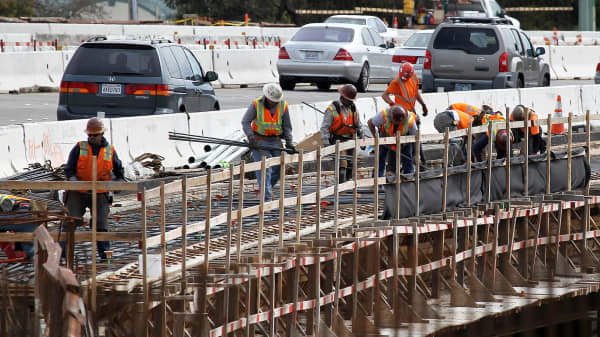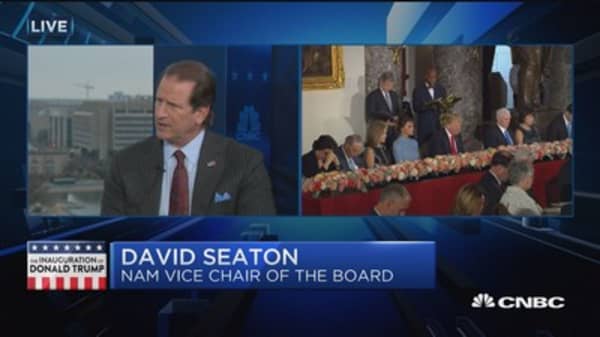Does anyone become wiser when they are spending somebody else's money?
Our current system of federal funding for transportation means that taxpayers in New York fund highways in Montana and drivers in Utah pay for New York's airports. If President Trump wants to seriously improve American infrastructure spending, he should champion a new federalism for transportation, in which infrastructure is funded by states, localities and especially the users themselves.
Too often, public debates devolve into a simplistic argument of "more" infrastructure versus "less." In many ways, America's infrastructure is woefully deficient, but we have also wasted billions on bridges to nowhere and highways in the middle of nowhere. The right question is how to get better infrastructure.
The best decisions are made when decision-makers bear the costs and reap the benefits. When companies invest, they agonize about whether future customers will pay enough to cover the production costs. Before Governor DeWitt Clinton built the Erie Canal, perhaps the most successful infrastructure investment in U.S. history, he had to convince a lot of skeptical New Yorkers. That's the kind of vetting that makes for good projects.
Having lived through Boston's Big Dig, I am well aware of how the promise of federal funding skews local decision-making. Local leaders stop asking themselves whether the benefits cover the costs because it's somebody else's nickel. In 1987, the Boston Globe's Editorial Page wrote that "Massachusetts could celebrate congressional passage of the massive, multi-year highway program, over President Reagan's veto," which enabled the "Central Artery reconstruction that will bring relief to the worst traffic mess in New England."
The federal government ultimately paid for only a small fraction of the Big Dig's $15 billion dollar plus price tag, but the project would have stalled without federal largesse.
Similarly, Detroit would have never built its absurd People Mover Monorail without federal encouragement and funding. The push for People Movers came not from the people of Detroit, but from the Federal Urban Mass Transit Administration, which was eager in the 1970s to demonstrate the upsides of this Disneyesque innovation. Those upsides certainly never materialized in Detroit.





